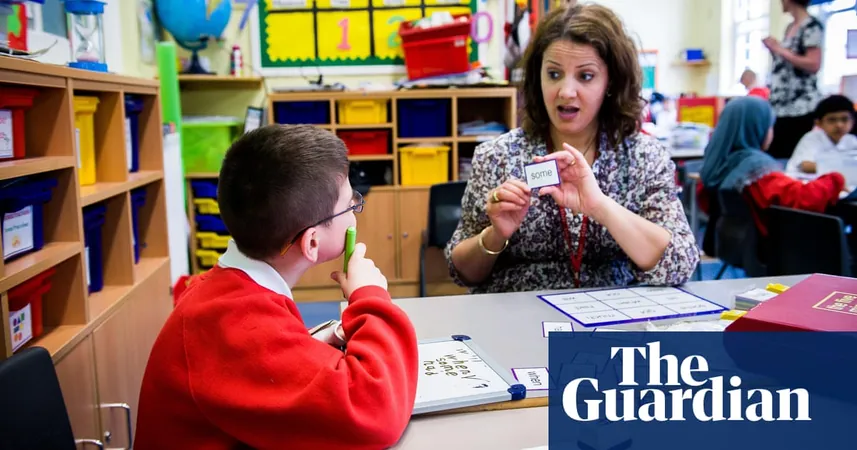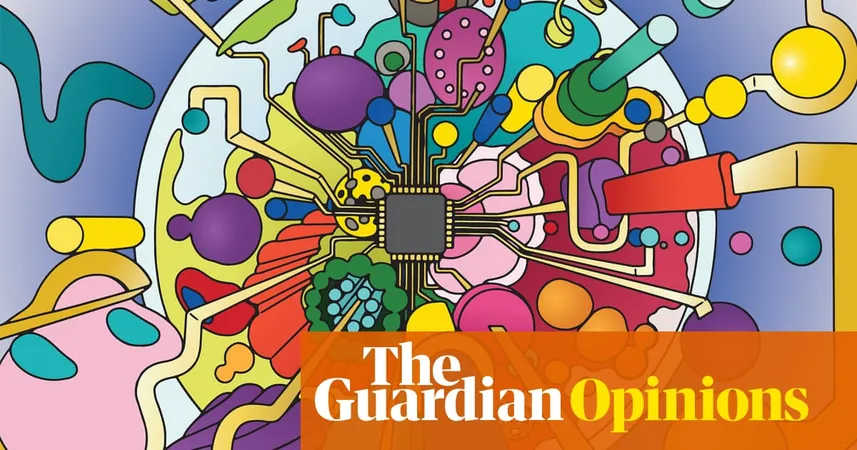
Debunking the Dangerous Vaccine-Autism Myth: How Misconceptions Are Fueling Stigma and Public Health Risks
2025-03-19
Author: Kai
In a startling move that has ignited heated discussions, the Centers for Disease Control and Prevention (CDC) has announced plans to allocate research funding to study the widely debunked myth that vaccines cause autism. This initiative is seen by many as an unfortunate validation of stigma surrounding both vaccines and autism spectrum disorder (ASD).
Matthew Shallenberger, a father from Tennessee with an 11-year-old autistic son, emphatically states that this myth not only mischaracterizes autism but also promotes a fearful attitude toward it. “It treats autism as a disease to be avoided at all costs,” he comments. Shallenberger's resolve to vaccinate his children is unwavering, especially in light of tragic incidents such as the death of an unvaccinated child from measles in Texas, which has fueled ongoing vaccine hesitancy.
The resurgence of this harmful myth can be traced back to a discredited 1998 study linked to Andrew Wakefield, which was pulled due to ethical violations and falsified data. Unfortunately, the misinformation has gained momentum in recent years, especially during the global discourse surrounding the COVID-19 vaccine, with influential figures like Robert F. Kennedy Jr. suggesting a connection between vaccines and autism.
The persistence of this belief, according to Lynne Peskoe-Yang, a 34-year-old journalist with autism, reflects a troubling societal perspective that views autistic individuals as somehow "contaminated," revealing deeper biases about how we perceive neurological differences. “It fits into a broader narrative where health beliefs are often more moral than scientific,” she observes.
Autism, as defined by the Diagnostic and Statistical Manual of Mental Disorders, encompasses a range of social challenges and behavioral patterns, with a diversity of expression that makes up the "spectrum." Some individuals navigate adulthood never receiving a formal diagnosis, while others may require lifelong support. Yet, autism is equally associated with remarkable strengths such as creativity, focus, and dedication in various professional contexts.
Parents, particularly those who embrace their autistic children's uniqueness, find it distressing to see other families jeopardizing their children's health over vaccine fears. Kate Abarca, a retired occupational therapist, reflects on her journey with her son, Benjamin. Learning to understand his autism, once perceived as a hindrance, has enriched her life and career profoundly. Today, her son is cherished in his community for his talent in karaoke performances.
Many autistic adults share Abarca's sentiments. Jonathan Knapp, a 71-year-old podcaster, was diagnosed with autism at 63. He notes that the challenges of autism are often exacerbated by misunderstandings and stigmas. “Many social behaviors attributed to autism can be mischaracterized, leading to undue fear about the condition,” he explains.
Emir Lopez, a 32-year-old IT professional, also views his autism as a gift, stating that stigma surrounding it is frustrating. “Hearing parents say vaccines cause autism just makes me so angry. We need to focus on facts rather than fears,” he asserts. Lopez has maneuvered through the stigma surrounding autism, finding empowerment in publicly acknowledging his diagnosis in lighthearted, yet pointed, social media posts.
The concerning trend of declining vaccination rates poses a significant public health risk, especially as preventable diseases make a resurgence. As Lopez fervently expresses: “People need to vaccinate. This is life or death. People are dying. Babies are dying!”
Ultimately, the interplay between vaccine misinformation and autism stigma is not just a public health issue; it's about fostering an understanding and acceptance of neurodiversity while debunking myths that can have dire consequences for both individual families and communities as a whole. Let us unite in the fight for accurate information and protect our children’s health.



 Brasil (PT)
Brasil (PT)
 Canada (EN)
Canada (EN)
 Chile (ES)
Chile (ES)
 Česko (CS)
Česko (CS)
 대한민국 (KO)
대한민국 (KO)
 España (ES)
España (ES)
 France (FR)
France (FR)
 Hong Kong (EN)
Hong Kong (EN)
 Italia (IT)
Italia (IT)
 日本 (JA)
日本 (JA)
 Magyarország (HU)
Magyarország (HU)
 Norge (NO)
Norge (NO)
 Polska (PL)
Polska (PL)
 Schweiz (DE)
Schweiz (DE)
 Singapore (EN)
Singapore (EN)
 Sverige (SV)
Sverige (SV)
 Suomi (FI)
Suomi (FI)
 Türkiye (TR)
Türkiye (TR)
 الإمارات العربية المتحدة (AR)
الإمارات العربية المتحدة (AR)